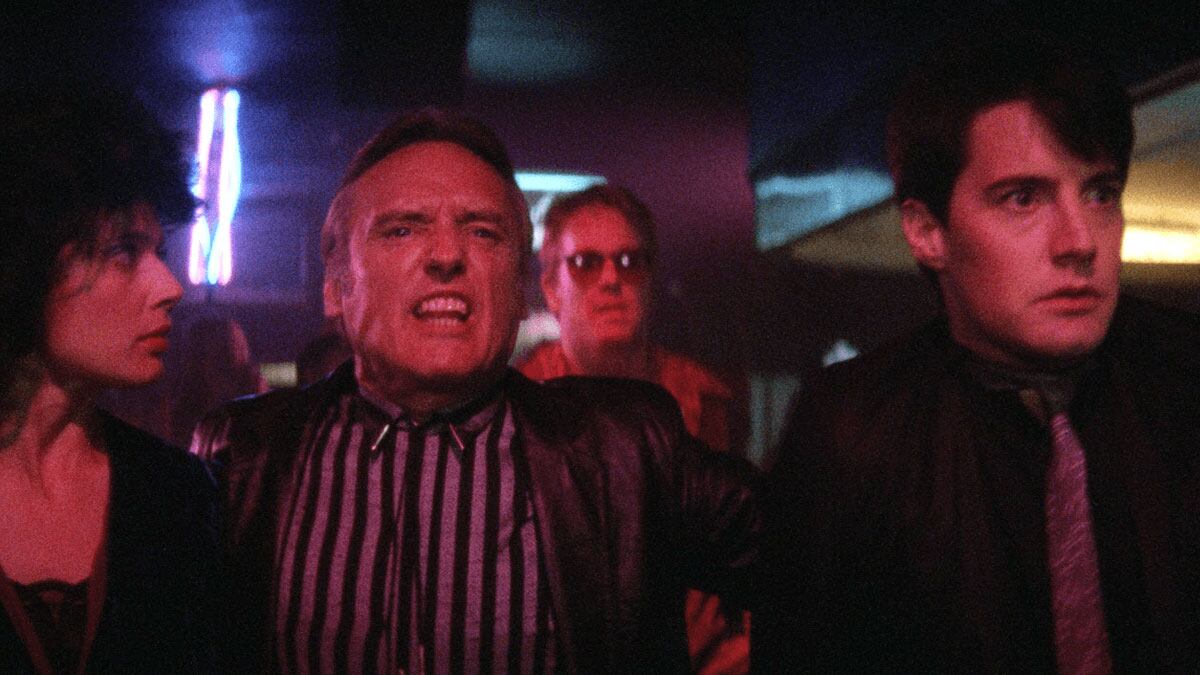Since the return of David Lynch's television series Twin Peaks, a grasp of the celebrated surrealist's 40-year career as a filmmaker has never been more relevant. And this Friday, the Northwest Film Center kicks off David Lynch: A Retrospective: a luxuriant two-month retrospective of all of Lynch's features, which include many of Lynch's short films, plus key classic influences like 2001: A Space Odyssey.
I watched all 10 of Lynch's features in anticipation and created a guide to the basic takes you'll encounter at these screenings, plus better takes to put you ahead of the pack. Memorize them and elaborate with references to "dream logic" and Angelo Badalamenti as you please.
BEST FILM
Basic: There are two defensible basic choices for best Lynch film: Blue Velvet, his career-defining tale of small-town lust and murder, and pitch-black quasi-noir Mulholland Drive.
Advanced: Starring Anthony Hopkins as the tortured Dr. Treves and John Hurt as John Merrick, a tender, thoughtful soul disfigured by disease, The Elephant Man is a strikingly beautiful, visually transfixing snapshot of Victorian England that transcends sentimentalism by speaking to Lynch's early themes of industrial alienation, and without an over reliance on jarring imagery. Though it was highly celebrated in 1980, it's since been overshadowed by Lynch's flashier later work, making it a perfect choice to establish breadth of Lynch knowledge and appreciation for technical filmmaking.
MOST UNDERRATED FILM
Basic: Critically panned upon release, Twin Peaks: Fire Walk With Me—the prequel to the original series that explains how Laura Palmer (Sheryl Lee) died—has been reappraised several times as a tense horror masterpiece. Though it features some truly unsettling scenes of psychological horror, Fire Walk With Me undermines the mythos established by the original series, souring much of its mystique and contributing little.
Advanced: Draped in black silk and red velvet, Lost Highway is Lynch's most visually striking film, a darkly sexual exploration of identity and memory punctuated by one of the best soundtracks of the '90s. Incredible performances by Patricia Arquette, Bill Pullman and Robert Loggia are woven together by a mastery of nonlinear narrative that few filmmakers possess.
Extra advanced: Even if you haven't seen it, refer to the controversial Wild at Heart as "Lynch's feminist masterpiece" and argue that Pulp Fiction wouldn't have existed without it.
WORST FILM
Basic: Lynch's adaptation of Frank Herbert's Dune is a dull, barely coherent sci-fi flop from which Lynch distanced himself after studio interference.
Advanced: Inland Empire is an ugly, three-hour-long art school slog that indulges Lynch's worst impulses without restraint and is a compelling argument that it should be illegal for directors to make their passion projects.
BEST VILLAIN
Basic: Frank Booth, Dennis Hopper's profane, popper-huffing gangster from Blue Velvet.
Advanced: Let's not make this more complicated than it needs to be: It's Frank Booth. Honorable mention to Robert Loggia's Mr. Eddy in Lost Highway, responsible for the best not-Red Room scene in David Lynch's career, the "tailgater beatdown."
SEE IT: David Lynch: A Retrospective begins with Eraserhead and a collection of Lynch's shorts at Northwest Film Center's Whitsell Auditorium at 7 pm, Friday, July 7. See nwfilm.org/calendar for the full lineup.
